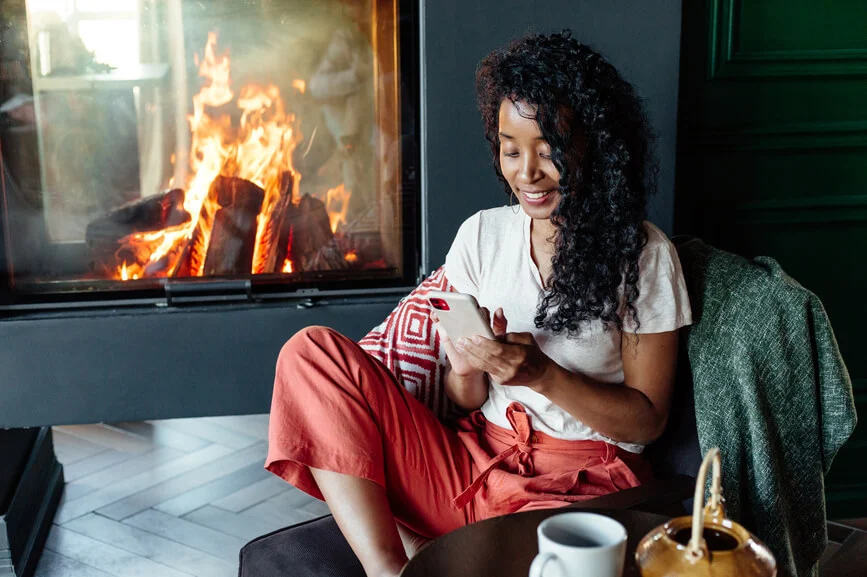Loving yourself in a relationship is key to building a healthy, balanced partnership where both individuals can grow and feel valued. This guide shares practical steps and mindset shifts to help you cultivate self-love while nurturing your connection. I’ve learned that when you prioritize your own well-being, boundaries, and emotional independence, you create the foundation for a truly fulfilling and respectful relationship. It’s not about being selfish; it’s about being whole.
What It Really Means to Love Yourself in a Relationship
Let’s clear something up: loving yourself in a relationship isn’t about choosing yourself over your partner. It’s about understanding that you are a complete person on your own. It means you don’t rely on your partner for your sense of worth or happiness. Think of it as emotional independence. This is the core of how to love yourself in any context, but it becomes especially important when your life is intertwined with someone else’s.

When you practice self-love, you bring your best self to the partnership. This leads to better communication, less codependency, and a more authentic connection. You stop looking for someone to “complete” you and start looking for someone to share your completeness with.
Practice Self-Acceptance Daily
Self-acceptance is the quiet, daily practice of being on your own side. It’s about looking at your flaws, your quirks, and your past mistakes without judgment. We all have things we wish we could change, but true self-love blossoms when you stop fighting who you are.
Perfectionism is a trap. It tells you that you’re only worthy of love when you’re flawless, which is impossible. Instead, try embracing “good enough.”
A simple way to start is with positive affirmations. It might feel silly at first, but the words you repeat to yourself have power. Try these:
- “I accept myself for who I am right now.”
- “My worth is not defined by my productivity or my mistakes.”
- “I am enough, just as I am.”
Say them in the mirror, write them on a sticky note, or just repeat them in your head. It’s about retraining your brain to be kind to yourself.
Set and Communicate Healthy Boundaries
Boundaries are the most loving thing you can do for yourself and for your relationship. They are simply the lines you draw to protect your peace, energy, and self-respect. Without them, it’s easy to feel drained, resentful, or lost.
Recognize Your Needs and Say No
First, you have to know what you need. Do you need quiet time after work? Do you need to stick to your budget? Do you need to feel heard without being interrupted? These needs are valid. Learning to say “no” is a powerful act of self-respect. You can do it kindly:
- “I’d love to help, but I don’t have the energy for that right now.”
- “I appreciate the invitation, but I need a quiet night in.”
- “I need to finish my thought before we move on.”

It’s not about rejecting your partner; it’s about honoring your own needs. Recognizing this is a huge step in learning how to value yourself as a woman and a person in a partnership.
Respect Your Partner’s Boundaries Too
This is a two-way street. Just as you have needs, so does your partner. When you both respect each other’s boundaries, you build a foundation of trust. It shows you see each other as individuals with separate needs, and that’s a sign of a truly healthy relationship. Listen when your partner expresses a limit, and don’t take it personally.
Prioritize Self-Care and Emotional Wellbeing
Self-care is more than just face masks and bubble baths. It’s the consistent practice of checking in with yourself and giving yourself what you need, especially on difficult days when you’re figuring out how to turn a bad day around without relying entirely on your partner for emotional balance. This is where you build resilient self love habits that sustain you through good times and bad.
Your self-care routine should cover a few key areas:
- Physical: Moving your body in a way you enjoy, eating nourishing food, getting enough sleep.
- Emotional: Journaling, talking to a friend, allowing yourself to feel your feelings without judgment.
- Mental: Reading, learning something new, taking a break from screens.
For some people, a calming nighttime skincare routine becomes a moment of mindfulness that signals the brain to slow down and reset.
Scheduling Solo Time and Activities
Alone time is not a sign that your relationship is in trouble. It’s essential. Scheduling time for your own hobbies and interests helps you stay connected to yourself. Whether it’s going for a walk, taking a pottery class, or just reading a book at a coffee shop, this time recharges you and reminds you of who you are outside of the relationship.

Emotional Regulation Techniques
When emotions run high, having a few tools can make all the difference. Simple breathing exercises, like inhaling for four counts, holding for four, and exhaling for six, can calm your nervous system instantly. Journaling is another great way to process feelings instead of letting them bottle up.
Cultivate Emotional Independence and Self-Validation
Relying on your partner for all your validation is a heavy burden for them and a trap for you. Emotional independence means you can validate your own feelings and celebrate your own achievements.
When you accomplish something, take a moment to be proud of yourself before you even tell your partner. When you feel upset, allow yourself to feel it and comfort yourself first. This doesn’t mean you can’t share with your partner. It just means their opinion is a bonus, not the source of your self-worth. This is the essence of learning how to love yourself unconditionally. You give that unconditional acceptance to yourself first.
Communicate from a Place of Wholeness
When you feel whole and secure in yourself, your communication style changes. You stop arguing to “win” or seeking validation. Instead, you communicate to connect and understand.
Practice using “I” statements. Instead of saying, “You always make me feel ignored,” try, “I feel unheard when I’m interrupted.” This takes ownership of your feelings without placing blame. It opens the door for a real conversation, not a fight. You approach disagreements as a team trying to solve a problem, not as two opponents.
Forgive Yourself and Embrace Growth
You will make mistakes. In your life and in your relationship. That’s guaranteed. Loving yourself means forgiving yourself when you do. It’s about treating yourself with the same compassion you would offer a good friend.

Holding onto guilt or shame doesn’t help you grow. Instead, look at mistakes as learning opportunities. Ask yourself, “What can I learn from this?” and then let it go. Self-love isn’t a destination you arrive at; it’s a continuous journey of growth and self-compassion.
In the end, loving yourself in a relationship makes that bond stronger, more resilient, and far more beautiful. It allows both of you to show up as your authentic selves. For more thoughts on wellness and self-discovery, you can always explore more at www.notonetype.org.


Có thể bạn quan tâm
Self Care at Work: Simple Strategies to Boost Your Well-Being and Productivity
Taking care of yourself at work isn’t selfish—it’s essential for maintaining your health, happiness, and...
Dec
Self Care Activities for Staff Meetings: 20 Simple Ideas to Boost Wellbeing
Staff meetings don’t have to drain your team’s energy. In fact, they can be the...
Dec
Self-Care for Seniors: 12 Easy Tips to Stay Healthy and Happy
Self-care becomes so much more important as we get older. It’s what helps us maintain...
Dec
Self Care for Teens: 15+ Tips to Manage Stress and Build Healthy Habits
Being a teenager is a lot. Between school pressure, a social life that’s always online,...
Dec
Self-Care for Women: 25+ Ideas to Prioritize Your Well-Being
Self-care isn’t a luxury—it’s essential for women balancing careers, relationships, family, and countless daily responsibilities....
Dec
Self Care for Women Over 40: Your Complete Guide to Thriving in Midlife
Turning 40 marks a shift where your body, mind, and priorities begin to change in...
Dec